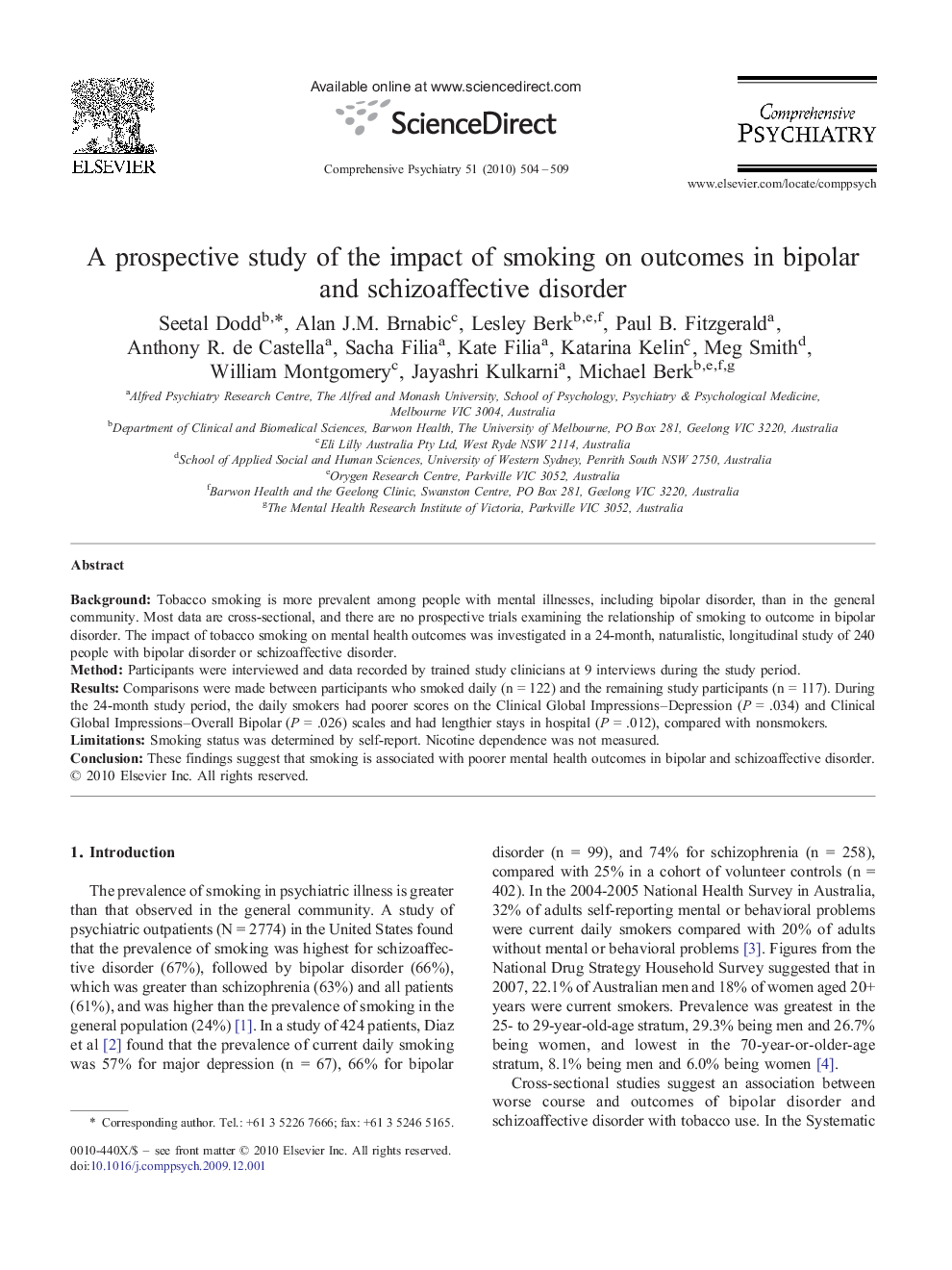| Article ID | Journal | Published Year | Pages | File Type |
|---|---|---|---|---|
| 318076 | Comprehensive Psychiatry | 2010 | 6 Pages |
BackgroundTobacco smoking is more prevalent among people with mental illnesses, including bipolar disorder, than in the general community. Most data are cross-sectional, and there are no prospective trials examining the relationship of smoking to outcome in bipolar disorder. The impact of tobacco smoking on mental health outcomes was investigated in a 24-month, naturalistic, longitudinal study of 240 people with bipolar disorder or schizoaffective disorder.MethodParticipants were interviewed and data recorded by trained study clinicians at 9 interviews during the study period.ResultsComparisons were made between participants who smoked daily (n = 122) and the remaining study participants (n = 117). During the 24-month study period, the daily smokers had poorer scores on the Clinical Global Impressions–Depression (P = .034) and Clinical Global Impressions–Overall Bipolar (P = .026) scales and had lengthier stays in hospital (P = .012), compared with nonsmokers.LimitationsSmoking status was determined by self-report. Nicotine dependence was not measured.ConclusionThese findings suggest that smoking is associated with poorer mental health outcomes in bipolar and schizoaffective disorder.
